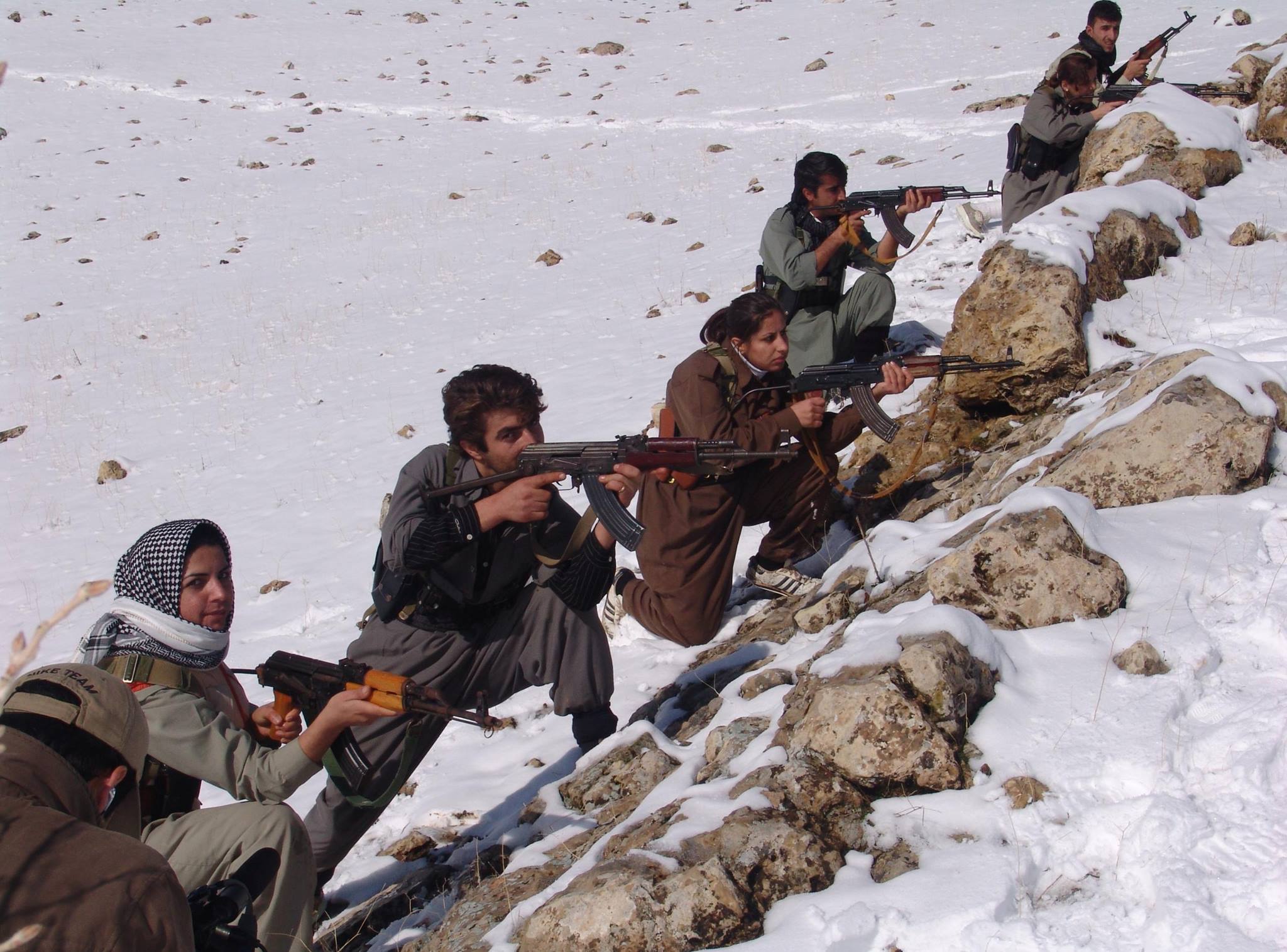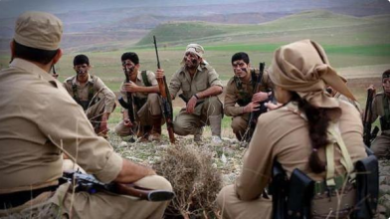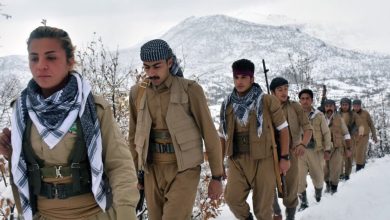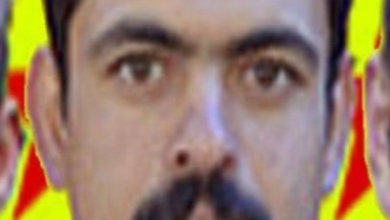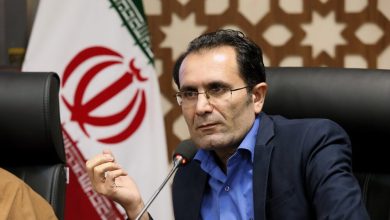Mohammad Sadeqi, originally from Kamaleh village in Sarvabad, is one of hundreds of young individuals whose lives were drastically altered by joining the Democratic armed group, influenced by poverty, lack of awareness, and targeted propaganda.
Understanding social and political phenomena in various societies requires a deep comprehension of individuals’ cultural, economic, and social backgrounds. One significant issue in this regard is the decision of individuals to join armed and militant groups, which can stem from various factors such as poverty, lack of access to education, social and political shortcomings, and the influence of friends and peers. Mohammad Sadeqi, with only an elementary education and working as a laborer and farmer, exemplifies this phenomenon. Born in a small village in Sarvabad, he joined the Democratic armed group in August 2019 due to his economic and social circumstances and environmental influences. This choice not only highlights his personal challenges but also reflects broader realities within the society he inhabits.
Various factors, including an affinity for weapons and warfare, inexperience, and peer encouragement, can act as catalysts for joining such groups. Furthermore, his return to Iran in 2011 indicates a shift in his life’s trajectory, potentially due to personal experiences or societal changes. In this text, by examining Mohammad Sadeqi’s life and the reasons he joined the Democratic armed group, we will strive to analyze different dimensions of this phenomenon and explore its social and cultural impacts on individual and collective life. Mr. Sadeqi, born in 1987, currently has two children: a 12-year-old son and a 4-year-old daughter.
Question: Please tell us about yourself, your birthplace, your family, and your living conditions before joining the Democratic group.
Mohammad Sadeqi: I’m Mohammad Sadeqi, born on October 24, 1987, from Kamaleh village in Sarvabad County. My childhood was spent in this village. My family were hardworking farmers; my father owned small plots of land and always worked the fields alone. My mother was a homemaker and sometimes helped my father with farm work. Financially, we were middle class, but we always prioritized hard work. That’s why I only completed my education up to the fifth grade of elementary school. After that, I dropped out to enter the job market, doing everything from shepherding and simple labor to helping out on other people’s farms.
Question: Were your reasons for dropping out solely economic problems, or did you also lack interest in school?
Mohammad Sadeqi: To be honest, both financial difficulties played a role, and the educational environment in the village wasn’t very engaging. Back then, if a family had several sons, usually one of them had to leave school earlier to help with household expenses. I was the eldest son, so it was natural for this responsibility to fall on me. My interest in studying wasn’t low, but life circumstances meant I had to work. Sometimes I still regret that my education remained so limited.
Question: How did you decide to join the Democratic group? What factors led to this choice?
Mohammad Sadeqi: This decision was a combination of several factors. First and foremost, I had an interest in weapons and military environments. Since childhood, whenever I watched war movies or heard talk of resistance and struggle, I’d get excited. I always thought fighting meant being a man and being strong. Second, it was my inexperience and lack of awareness; I never had the chance to truly think about what these groups were exactly and what they were looking for. But the most important factor was the encouragement of an old friend named Fereydoun Amini, who was from a nearby village. He had joined the Democratic group a few years earlier, and every time I contacted him, he would tell me about his life there. He spoke of freedom, excitement, respect, and fighting for Kurds, and these words greatly influenced me.
Question: When did you decide to leave Iran, and how did you manage it?
Mohammad Sadeqi: In August 2010, I decided to leave Iran. I told my family I was going to Sanandaj for work for a few days, pretty much without their knowledge. In reality, with Fereydoun’s help and two other members of the group, I found a way to cross the border. We traveled by night, using back roads and without a passport, towards the Kurdistan Region of Iraq. At that moment, the only thing on my mind was that I was entering a new world; a world that was going to make me a strong man.
Question: What was your first encounter with members of the Democratic group like? What was the atmosphere?
Mohammad Sadeqi: Initially, the group members were very friendly and welcoming. They greeted me with smiles and spoke of their ideals and struggles. I was housed in one of the group’s training camps, and the first few days were exciting and new for me. Weapons, military uniforms, combat training, and political slogans made everything appealing. But I soon realized that this attractive facade was just a superficial layer. The reality behind the scenes was very different. Over time, the behavior of older members changed, and strict regulations, lack of freedom, disorganization in decisions, and psychological pressures became apparent. I felt like I had entered a closed system that focused more on controlling members’ minds than on actual struggle.
Question: What challenges did you experience during your time with the group?
Mohammad Sadeqi: The challenges were immense. Psychologically, I was tormented by feelings of alienation and loneliness. There was no news from my family, and no one truly befriended me. Fear of leaving the group or asking questions always hung in the air. There was strict supervision over conversations between members. Physically, conditions in the camps were also very difficult; food was scarce, hygiene was poor, and rest was insufficient. I often witnessed young people who had arrived with hope become depressed or even ill after a few weeks.
Question: Did you observe any internal conflicts or misconduct within the group?
Mohammad Sadeqi: Yes, unfortunately, there were many such instances. One thing that deeply bothered me was the discrimination among members. Those from influential or older families had more facilities and freedom. Newcomers had to do all the hard work. Internal disputes and ethnic and political differences were also common. Sometimes verbal insults between members caused tension, and there was no space for dialogue or empathy. Gradually, I understood that this was not a suitable place for growth or struggle at all.
Question: What led you to decide to leave the group? How was this decision carried out?
Mohammad Sadeqi: After about ten months, I couldn’t continue anymore. I came to my senses and realized I was living a great lie that bore no resemblance to my goals. I was deeply disheartened and thought of my family every night, especially my mother, who waited daily without knowing my situation. It was June 2011 when my decision became firm. With my family’s help, I was able to turn myself in to Iranian forces and return to the country. It was extremely difficult, but the feeling of liberation was incredible for me.
Question: After your return, how did you reconnect with society and your family?
Mohammad Sadeqi: Thank God my family forgave me, especially my mother, who always prayed for me. My wife, whom I had recently married, also gave me another chance. After returning, I gradually got back to normal life; I resumed farming and labor work. With great effort, I was able to get back on my feet. I now have two children: a twelve-year-old son and a four-year-old daughter. Our life is simple but full of peace. I’m no longer looking for excitement; instead, I’m seeking stability.
Question: When you look back, how do you feel?
Mohammad Sadeqi: I’m full of regret, but not the kind of fruitless regret. That experience taught me how easily one can be deceived when unaware. Today, I appreciate security, family, and peace much more. If I hadn’t made that mistake, maybe I’d be in a better place now, but I thank God I was given a chance to return.
Question: What message do you have for young people who might be tempted to join these groups today?
Mohammad Sadeqi: From the bottom of my heart, I tell them not to let their emotions be played with. These groups have an appealing facade, but behind it is full of lies. They won’t build any future for you and will only exploit you. If you’re looking for freedom and power, pursue it with knowledge, effort, and awareness. Your homeland, your family, and your peace are far more valuable than their false slogans. I made a mistake; don’t you make the same one.

